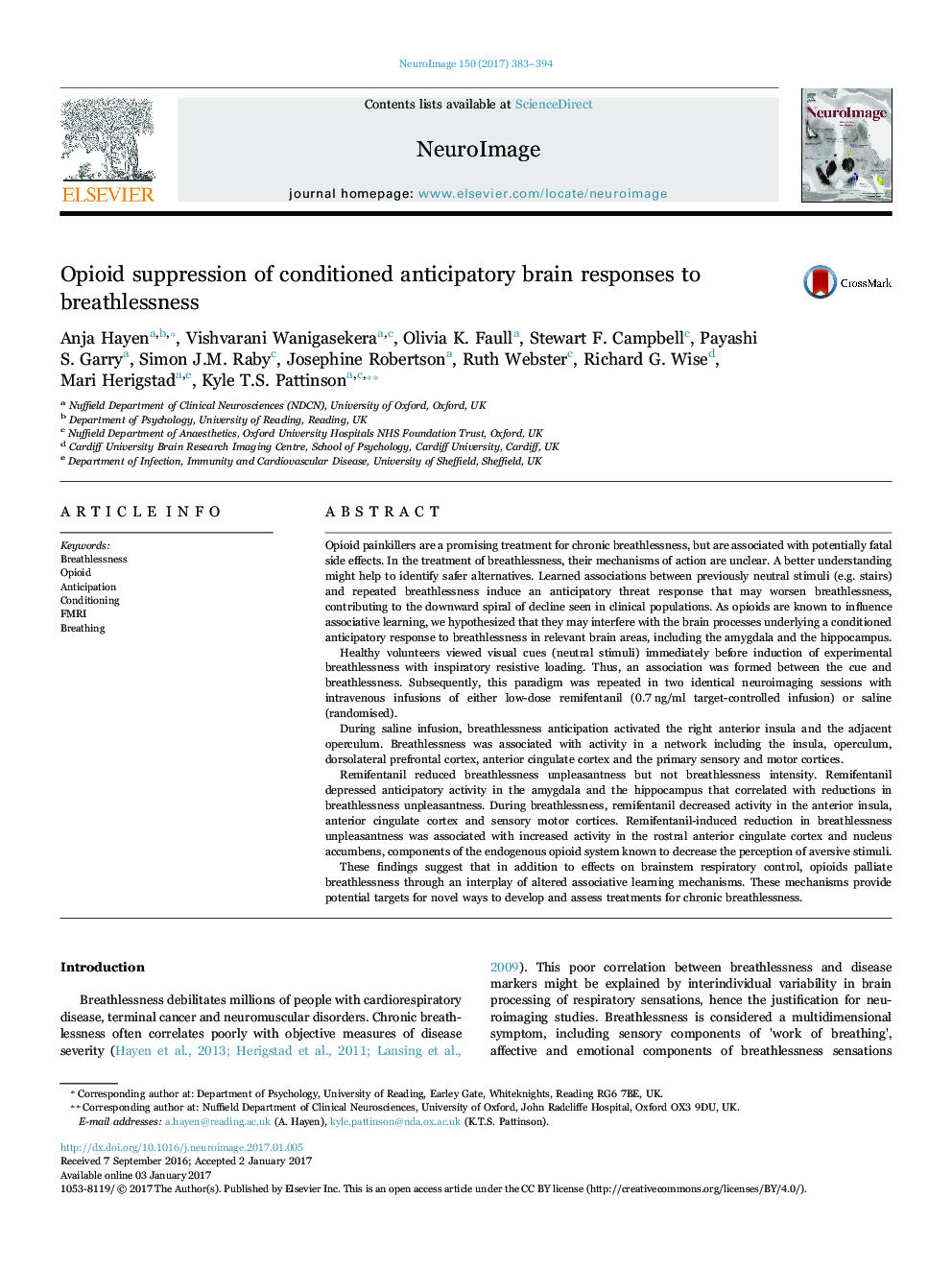| کد مقاله | کد نشریه | سال انتشار | مقاله انگلیسی | نسخه تمام متن |
|---|---|---|---|---|
| 5631652 | 1580860 | 2017 | 12 صفحه PDF | دانلود رایگان |
- The mechanisms of how low-dose opioids relieve breathlessness are unknown.
- We tested whether low-dose opioids affect conditioned anticipation and perception of breathlessness.
- Low-dose opioids reduced unpleasantness, but not intensity of breathlessness.
- Reduced breathlessness unpleasantness was associated with activation of the endogenous opioid system.
- Breathlessness relief was predicted by decreased anticipatory activity in amygdala/hippocampus.
Opioid painkillers are a promising treatment for chronic breathlessness, but are associated with potentially fatal side effects. In the treatment of breathlessness, their mechanisms of action are unclear. A better understanding might help to identify safer alternatives. Learned associations between previously neutral stimuli (e.g. stairs) and repeated breathlessness induce an anticipatory threat response that may worsen breathlessness, contributing to the downward spiral of decline seen in clinical populations. As opioids are known to influence associative learning, we hypothesized that they may interfere with the brain processes underlying a conditioned anticipatory response to breathlessness in relevant brain areas, including the amygdala and the hippocampus.Healthy volunteers viewed visual cues (neutral stimuli) immediately before induction of experimental breathlessness with inspiratory resistive loading. Thus, an association was formed between the cue and breathlessness. Subsequently, this paradigm was repeated in two identical neuroimaging sessions with intravenous infusions of either low-dose remifentanil (0.7Â ng/ml target-controlled infusion) or saline (randomised).During saline infusion, breathlessness anticipation activated the right anterior insula and the adjacent operculum. Breathlessness was associated with activity in a network including the insula, operculum, dorsolateral prefrontal cortex, anterior cingulate cortex and the primary sensory and motor cortices.Remifentanil reduced breathlessness unpleasantness but not breathlessness intensity. Remifentanil depressed anticipatory activity in the amygdala and the hippocampus that correlated with reductions in breathlessness unpleasantness. During breathlessness, remifentanil decreased activity in the anterior insula, anterior cingulate cortex and sensory motor cortices. Remifentanil-induced reduction in breathlessness unpleasantness was associated with increased activity in the rostral anterior cingulate cortex and nucleus accumbens, components of the endogenous opioid system known to decrease the perception of aversive stimuli.These findings suggest that in addition to effects on brainstem respiratory control, opioids palliate breathlessness through an interplay of altered associative learning mechanisms. These mechanisms provide potential targets for novel ways to develop and assess treatments for chronic breathlessness.
Journal: NeuroImage - Volume 150, 15 April 2017, Pages 383-394
